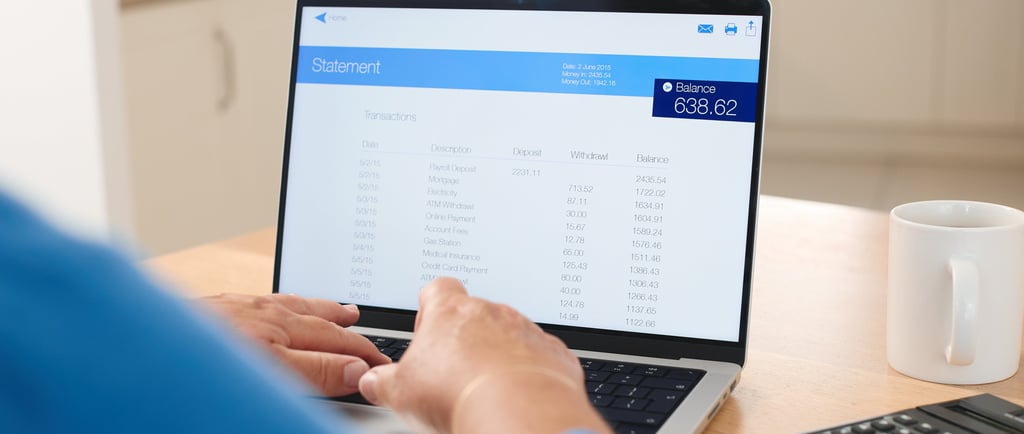Automate Invoice Reminders with AI Templates
ai-bsm.com
8/25/20253 min read


Late payments create cash flow challenges for businesses of all sizes. Many professionals spend hours manually tracking overdue invoices and crafting reminder messages—a process that's both time-consuming and inconsistent. Without a systematic approach, payment collection becomes reactive rather than proactive, leading to longer payment cycles and awkward client conversations.
By leveraging ChatGPT to create and personalize invoice reminder templates, you can transform payment collection into an automated, consistent process that maintains positive client relationships while significantly improving your cash flow.
The AI Invoice Reminder Framework
Follow this framework to create effective, automated invoice reminders:
Step 1: Prepare Your Invoice Data
Before engaging with ChatGPT, gather basic information about:
Your typical payment terms and timeline
Different client categories (if applicable)
Common reasons for late payments
Your preferred tone for payment communications
Any specific policies regarding late fees or incentives
This preparation helps tailor your reminders to your specific business context.
Step 2: Reminder Sequence Development Prompt
Start by creating a strategic sequence of reminders:
Reminder Sequence Prompt I need to develop a sequence of invoice reminder messages for my [type of business]. Our payment terms are [payment terms, e.g., "net 30"], and we typically experience these payment patterns: - [Describe typical payment behaviors] Please help me create a strategic sequence of 4-5 reminder messages that: 1. Start with a gentle, pre-due reminder 2. Progress appropriately in tone and urgency 3. Maintain professionalism and preserve client relationships 4. Include clear calls-to-action at each stage 5. Address common payment delay reasons proactively For each message in the sequence, please suggest: - Optimal timing (days before/after due date) - Subject line - Key content elements - Appropriate tone
This prompt helps develop a strategic progression of reminders that balance effectiveness with relationship preservation.
Step 3: Template Creation Prompt
Next, develop the actual templates for each stage:
Template Creation Prompt Based on our reminder sequence strategy, please create the actual message templates for each stage: For each template, please include: 1. Subject line: Clear but not aggressive 2. Greeting: Professional and appropriate for our relationship 3. Opening: Context for the message 4. Details: Invoice information to include 5. Action request: Clear next steps 6. Closing: Appropriate sign-off 7. PS/Note: Any additional helpful information Our brand voice is [describe tone: friendly but professional, formal, conversational, etc.], and we want to convey [key attributes: respect, efficiency, flexibility, etc.]. Please create these templates with customization placeholders for: - Client name - Invoice number - Invoice amount - Due date - Payment methods
This prompt helps create complete, ready-to-use templates for each stage of your reminder sequence.
Step 4: Personalization Variables Prompt
Develop approaches for personalizing reminders based on client relationships:
Personalization Variables Prompt I'd like to personalize these reminder templates based on different client relationships and situations: Client categories: - [Category 1, e.g., "New clients (less than 6 months)"] - [Category 2, e.g., "Long-term clients (over 2 years)"] - [Category 3, e.g., "High-value clients (over $X/month)"] Situation variables: - [Variable 1, e.g., "First late payment vs. repeated late payments"] - [Variable 2, e.g., "Small vs. large invoice amounts"] - [Variable 3, e.g., "Clients who have communicated vs. non-responsive clients"] For each client category and situation variable, please suggest: 1. Specific language adjustments to make 2. Additional elements to include or remove 3. Tone modifications appropriate to the relationship 4. Alternative approaches if standard reminders don't work
This prompt helps create a system for appropriately tailoring reminders to different client relationships and situations.
Step 5: Automation Integration Prompt
Finally, prepare for implementing these templates in your systems:
Automation Integration Prompt I plan to implement these reminder templates in [your system, e.g., "our CRM" or "accounting software"]. Please help me prepare for automation by: 1. Formatting these templates for easy import (plain text, avoiding special formatting) 2. Creating a simple decision tree for which template to use when 3. Suggesting trigger points and conditions for each message 4. Recommending how to handle responses to these automated messages 5. Suggesting a monitoring system to track the effectiveness of different templates Please also recommend a simple A/B testing approach I could use to optimize these messages over time.
This prompt helps prepare your templates for practical implementation in your existing systems.
Implementation Tips for Effective Reminders
Start Friendly: Your first reminder should assume an oversight rather than intentional non-payment.
Be Specific: Always include exact invoice numbers, amounts, and due dates.
Offer Solutions: Provide multiple payment options and address common obstacles.
Document Everything: Keep records of all reminders sent for future reference.
Review Regularly: Analyze which templates get the best response and refine accordingly.
By implementing this AI invoice reminder framework, you transform payment collection from a reactive, time-consuming task into a proactive, automated system. This approach helps you maintain consistent cash flow while preserving positive client relationships through professional, strategic communications.
Need expert guidance on implementing AI-powered financial automation for your business? Contact AI Business Success Mentoring today. Our specialists can help you develop custom reminder systems tailored to your specific business needs. Visit ai-bsm.com to schedule your consultation.
Let's Talk
Pages
© 2024. All rights reserved.
Your Trusted AI Partner.
Important Links
Get in Touch
